On April 24, 2023, the Atlantic Council’s Iraq Initiative convened a hybrid panel discussion to examine Iraq’s current economic and energy landscape, and their future trajectory. The panel discussed Iraq’s significant progress in rebuilding its economy and energy sectors that have suffered since the 2003 US invasion of the country, despite facing various challenges such as corruption, political instability, and conflict.
The event included introductory remarks from the Director of the Iraq Initiative at the Atlantic Council, Dr. Abbas Kadhim, and was moderated by the Senior Director, and Richard L. Morningstar Chair of the Global Energy Security Center at the Atlantic Council, Landon Derentz. The event featured the Chief Executive Officer of Crescent Petroleum, Majid Jafar; the Co-Founder and President of the Iraq Foundation, Ambassador Rend al-Rahim; and Atlantic Council Nonresident Senior Fellow, Ahmed Tabaqchali.
Addressing economic and structural obstacles to foreign investment in Iraq’s energy sector
Kicking off the conversation, Derentz addressed Iraq’s dire economic situation, highlighting the recent devaluation of the dinar and inadequate foreign direct investment (FDI) inflow in the country, particularly from the US and European countries. He also emphasized that despite being the second-largest oil producer in OPEC, Iraq still faces energy security challenges, and the government has been forced to import electricity from neighboring countries such as Iran, Kuwait, and Saudi Arabia. This is noteworthy as oil revenues comprise a considerable proportion of Iraq’s government revenues, GDP, and exports.
Meanwhile, al-Rahim shared her insights on Iraq’s precarious business environment, citing corruption, infrastructure, and judiciary system, that have contributed to the country’s perilous and unpredictable environment, discouraging both foreign and domestic investors. To begin with, she referred to the rampant corruption in Iraq that is in part due to the Muhasasa system fostering political patronage, resulting in inefficient public services. The system, she said, “is enough to deter anyone from dealing with the government.”. Additionally, she asserted that this risky business environment may pose severe consequences for foreign companies suspected of engaging in corrupt practices in Iraq. Moreover, insufficient infrastructure and political instability yield an unpredictable political environment, deterring FDI. Finally, investors face many obstacles when engaging with the judiciary system due to its complex structure and the political interference that often protects it.
Lastly, Jafar, identified factors such as decades of wars, sanctions, European colonialism, corruption, and poor transparency that have impacted the country’s oil production and levels of FDI. While there has been a significant increase in oil production since the US invasion in 2003, Jafar noted that the country has yet to realize its full potential. He also cited the contract model as the primary reason most Western companies leave the Iraq energy sector, noting that fixed fee-per-barrel agreements are rare for international investment in this field. Although Iraq has revised its contract framework, earlier contracts have yet to be retroactively subjected to the updated model. Regarding policy reforms, Jafar mentioned that the Iraqi government plans to approve a positively impactful three-year budget that includes revenue-sharing principles between the Federal Government and the Kurdistan Regional Government (KRG). Furthermore, Jafar emphasized the importance of Iraq’s electricity needs as the current government of Prime Minister al-Sudani prioritizes gas production to provide power generation. Jafar stated that the exploration and development of Iraq’s undeveloped gas fields should be a critical area of focus for the future. The electricity sector needs comprehensive reforms, including power generation, transmission, and distribution, to reduce losses and develop the necessary infrastructure.
Collaboration for energy security: overcoming geopolitical challenges in gas production in Iraq
When asked about the main geopolitical challenges in gas production, Tabaqchali, referred to the political relationship between Baghdad and Erbil and argued that Iraq should focus on fulfilling its own needs by integrating its economy with the KRG. In terms of Iraq’s growing demand for electricity, he also mentioned that Iran cannot meet Iraq’s demand due to their own power generation needs and lack of investment. Therefore, the KRG and the Iraqi Federal Government should collaborate to resolve these issues and work with their neighbors.
To do so, Tabaqchali stated that Baghdad and Erbil first must reach a consensus on how they interpret the Constitution, whether they view Iraq as a strong centralized state or a federation with everyone contributing to it. Then, a win-win formula needs to be reached in agreements between Iraq and oil companies to benefit from their resources and technology.
Jafar echoed Tabaqchali’s viewpoint that the main problem affecting Iraq’s electricity generation is the shortage of fuel. He elaborated that Iraq needs to enhance its gas and oil production to meet its actual demand of 4 billion cubic feet per day, which could easily double to 8 billion cubic feet per day by the end of the decade. Jafar predicted that there may still be a 2 billion cubic feet deficit per day, which could require imports unless exploration efforts are increased in Iraq. The goal should be providing 24-hour electricity for Iraqi citizens, which is critical for stability and economic development. Once the power needs are fulfilled, the priority is to use gas for industrial development and job creation, with any surpluses being exported.
Maximizing value for Iraq: balancing contract types and resource nationalism in the energy sector
When asked about contract types and their impact on Iraq’s energy sector, Jafar clarified the difference between product-sharing and service contracts. He also explained that it is a misconception that production-sharing agreements or investment contracts are more profitable for investors. Unlike some of its regional neighbors, such as Iran and Kuwait, Iraq’s Constitution allows private investment in the oil sector if the investment model aligns the interests of investors with those of the host government.
Al-Rahim also highlighted three factors that have impacted Iraq’s oil contracting: a socialist mindset of preventing foreigners from controlling the sector, a lack of technical expertise, and a sense of arrogance that has affected Iraqi decision-making.
The panelists agreed that there is a sense of resource nationalism in the Iraqi mindset, a consequence of Iraq’s colonized history as large Western majors had formerly monopolized the oil sector. However, according to Tabaqchali, a mutually beneficial deal is the only way to ensure success. Jafar added that Iraq should focus on maximizing the value of oil efficiently, rather than interpreting contracts as a zero-sum game with investors.
Opportunity costs in face of high operational costs
Currently, a significant portion of Iraq’s revenues go toward the government’s operating budget. The panelists agreed that while the federal budget should focus on rebuilding destroyed infrastructure and service provision, the Central Government allocates upwards of 76% of the budget to government expenses such as employee salaries, subsidies, pensions, and operating costs. These costs produce no tangible positive impact, such as diversification of the economy and long-term investment in public goods.
Employment opportunities also contribute to the problem: according to Tabaqchali, while approximately 700,000 jobs were added to the payroll this year in Iraq, only 75,000 of those positions were marketed for the 400,000 newly graduated Iraqis seeking to enter the workforce.
A double-edged sword? reforms and accountability measures for the new administration
In line with Iraqi Prime Minister al-Sudani’s idea of establishing a “service government”, al-Rahim claimed that al-Sudani, “is not necessarily concerned with [political reform]; he is concerned with economic reform.” Referencing the White Paper for Economic Reforms, authored in part by Iraq’s former Deputy Prime Minister and Minister of Finance, Dr. Ali Allawi, as an example, al-Rahim suggested that she sees al-Sudani trying to implement elements of this economic roadmap—including reforms in foreign remittance policies and the overall banking sector—without crediting it. On the other hand, al-Sudani’s administration has also introduced unprecedented structural and internal reforms within Iraq’s executive branch, including evaluation processes to measure government performance and confront corruption.
What has motivated these reforms? Twenty years of government nonperformance has created popular discontent. Thus, to secure popular support and maintain future approval of his administration, said al-Rahim, al-Sudani’s reforms resulted from the Iraqi public’s pressure on the new government to meet their needs for improved healthcare, education, and jobs. Jafar echoed this, adding that implementing reforms that keep director generals and ministers accountable for their performance, “is a welcomed first step.”
However, the current politicization of the civil service in Iraq prompted al-Rahim to regard accountability-prioritizing reforms as a double-edged sword. In light of Iraq’s current Muhasasa system, “we’re not holding the political leadership accountable,” she claimed. This is because in cases of a director general or minister’s potential dismissal due to failing performance, the political party to which the official belonged may not necessarily find an improved replacement. Subsequently, a constant overturning of ministry leaders would create a loss in the ministry’s technocratic capabilities while neglecting to hold political parties accountable.
Iraq in the global community: addressing climate change and mobilizing the youth
The panelists also assessed the role of Iraq within the global energy transition and multilateral climate action to face climate change. Jafar commented on the negative impact of climate change on Iraq, citing, “over a third of Iraq’s electricity is generated by burning liquid fuels, which is terrible for the budget and climate.”
According to Jafar, current operations in Iraq, like reducing carbon dioxide emissions and using natural gas to enable renewable sources, are vital to developing energy sustainability and contributing to the global climate agenda. As CEO of Crescent Petroleum, Jafar stated that his company maintains carbon neutrality by nearly eliminating gas flaring and emissions while using carbon credits that support wind power in Asia to offset the remainder.
Regarding mobilizing youth to inspire economic and combatting climate change in Iraq, al-Rahim emphasized that Iraqi youth feel particularly connected to the global community—motivating the population’s collective ambition and entrepreneurial spirit. Having met with young entrepreneurs in the tourism, food production, and information technology industries, al-Rahim stated that the government and international donors would benefit from investing in their activities that currently take place across the country, including enterprise-building and environmental relief efforts.
Closing thoughts: the role of investors, industries, and the global community in unlocking Iraq’s potential
Speaking about the role of international partners in Iraq’s economy, Tabaqchali affirmed that addressing the crux of fundamental economic issues, like declining water levels, is essential to tackling Iraq’s energy crisis.
Jafar added that helping Iraq transition into a private sector-led diversified economy is the only way to reduce youth unemployment and alleviate corruption. Moreover, Iraq’s overall positive relations with regional and global powers reinforce its role in establishing diplomatic channels between those powers. Such a role can be leveraged to enhance regional FDI coming into Iraq.
As the newly elected administration governs over a relatively peaceful era in Iraq, al-Rahim advised that investors face new opportunities that can help meet Iraq’s needs. Both foreign and domestic industries can also encourage modest applications of venture capitalism in Iraq to advance young entrepreneurs’ participation in the economy.
Altogether, the panelists expressed their optimism toward a hopeful future for Iraq. Today, the energy and engagement of the Iraqi public is high, so it is more vital than ever to bolster private citizen participation in the financial and energy sectors, even if that means taking risks. As Derentz summarized, “Every risk is an opportunity. We need to maintain the moment because Iraq’s people are its greatest resource and Iraq’s true energy and hope.”
Mahnaz Vahdati is a Young Global Professional with the Atlantic Council’s Middle East Programs.
Amna Haider is a project assistant with the Atlantic Council’s Middle East programs, where she supports the Center’s work on Iraq.
Source: Atlantic Council, May 9, 2023


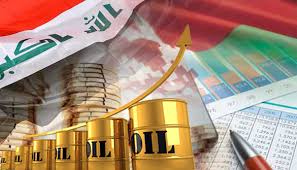
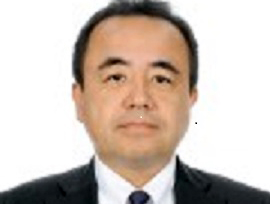

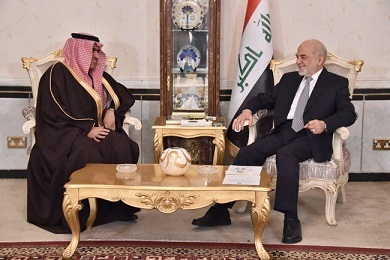
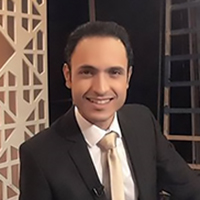
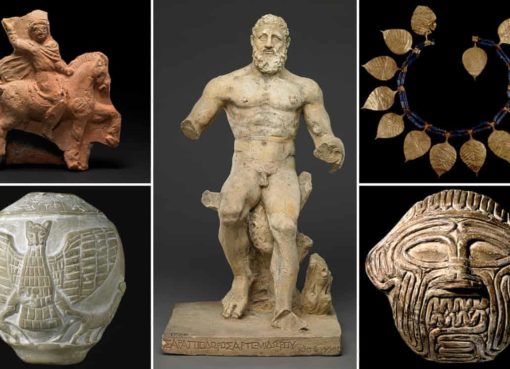
Comment here